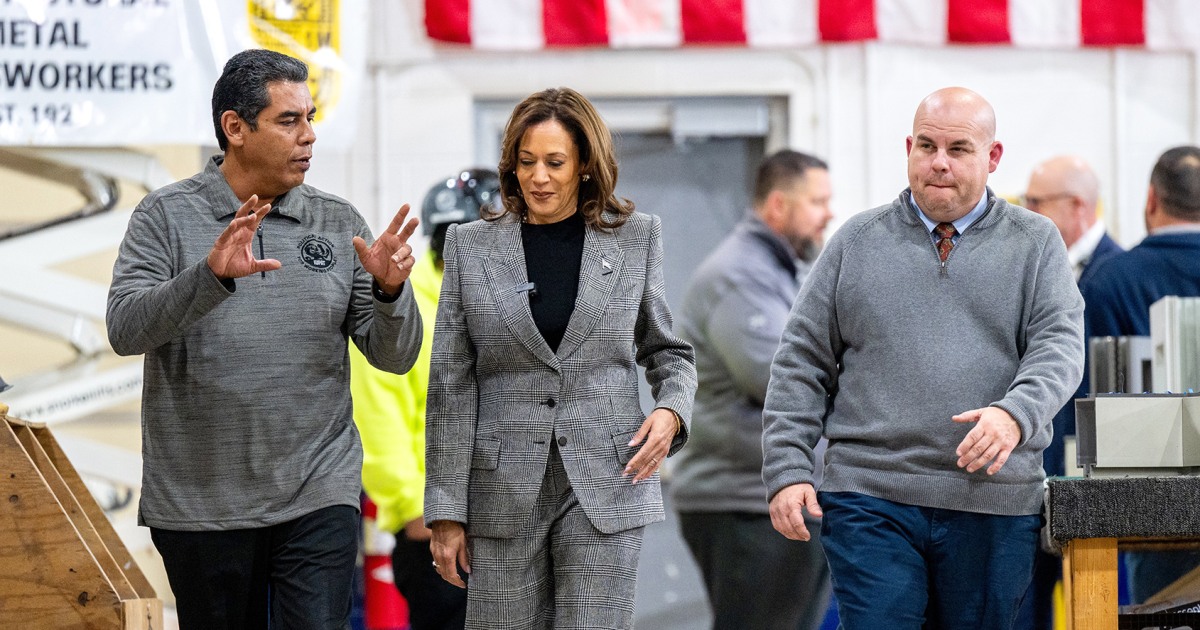Summary
Following the Democrats’ recent election losses, some, including Senator Bernie Sanders, argue that the party failed by “abandoning” the working class.
However, critics counter that Democrats under Biden implemented one of the most pro-working class agendas in decades, passing union-supportive policies, job-creating infrastructure bills, and increasing wages.
Despite these efforts, Democrats saw little electoral benefit, especially among nonwhite working-class voters, as cultural grievances took precedence for many working-class voters.
Analysts suggest that the party’s best path forward may be to focus on college-educated suburban voters rather than attempting to win back working-class Republicans.



When I first read this comment I actually believed I had missed where biden said this and I believed you. But then I went back and reread the transcript of the debate. Nowhere does biden say anything remotely close to this.
Here is Bidens respond when he is asked about the economy:
Let’s begin the debate. And let’s start with the issue that voters consistently say is their top concern, the economy. President Biden, inflation has slowed, but prices remain high. Since you took office, the price of essentials has increased. For example, a basket of groceries that cost $100 then, now costs more than $12; and typical home prices have jumped more than 30 percent.
What do you say to voters who feel they are worse off under your presidency than they were under President Trump?
BIDEN: You have to take a look at what I was left when I became president, what Mr. Trump left me. We had an economy that was in freefall. The pandemic are so badly handled, many people were dying. All he said was, it’s not that serious. Just inject a little bleach in your arm. It’d be all right. The economy collapsed. There were no jobs. Unemployment rate rose to 15 percent. It was terrible. And so, what we had to do is try to put things back together again. That’s exactly what we began to do. We created 15,000 new jobs. We brought on – in a position where we have 800,000 new manufacturing jobs.
But there’s more to be done. There’s more to be done. Working class people are still in trouble.
I come from Scranton, Pennsylvania. I come from a household where the kitchen table – if things weren’t able to be met during the month was a problem. Price of eggs, the price of gas, the price of housing, the price of a whole range of things. That’s why I’m working so hard to make sure I deal with those problems. And we’re going to make sure that we reduce the price of housing. We’re going to make sure we build 2 million new units. We’re going to make sure we cap rents, so corporate greed can’t take over.
The combination of what I was left and then corporate greed are the reason why we’re in this problem right now. In addition to that, we’re in a situation where if you had – take a look at all that was done in his administration, he didn’t do much at all. By the time he left, there’s – things had been in chaos. There was (ph) literally chaos. And so, we put things back together. We created, as I said, those (ph) jobs. We made sure we had a situation where we now – we brought down the price of prescription drugs, which is a major issue for many people, to $15 for – for an insulin shot, as opposed to $400. No senior has to pay more than $200 for any drug – all the drugs they (inaudible) beginning next year.
And the situation is making – and we’re going to make that available to everybody, to all Americans. So we’re working to bring down the prices around the kitchen table. And that’s what we’re going to get done.
TAPPER: Thank you.
You right. I thought it was then. Maybe it was a reporter question around the debate. That would explain the tone of what I remember. I don’t care enough about this to search any more, so you can just say I’m misremembering.